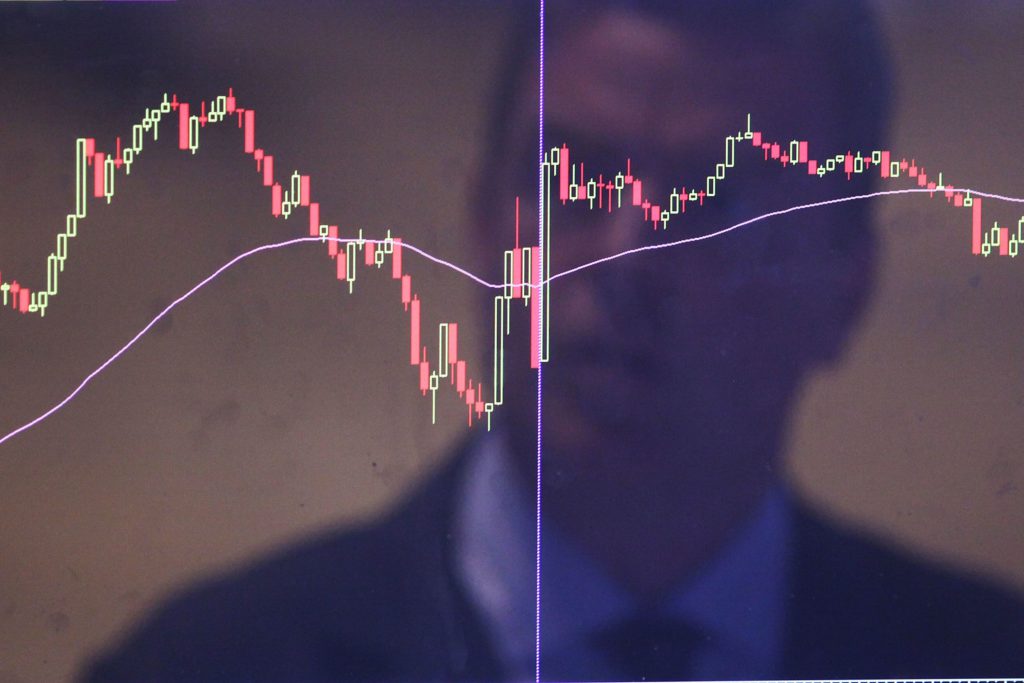Stocks fell before Friday’s jobs data, with traders betting the Federal Reserve will hold rates at a higher level for a longer period to tame inflation at the expense of economic growth. The pound sank as the Bank of England told investors to rein in expectations for hikes.
(Bloomberg) — Stocks fell before Friday’s jobs data, with traders betting the Federal Reserve will hold rates at a higher level for a longer period to tame inflation at the expense of economic growth. The pound sank as the Bank of England told investors to rein in expectations for hikes.
The S&P 500 dropped for a fourth consecutive session, while big tech once again got hit as Treasury yields climbed. Swaps that reference future Fed meetings indicate an expected peak rate above 5.1% in May and June 2023. Estimates briefly dropped below 5% on Wednesday. The benchmark rate currently sits in a range of 3.75% to 4%.
“Remember, ‘lower for longer’ in 2021 in terms of the interest rate environment?,” wrote Matt Maley, chief market strategist at Miller Tabak + Co. “Well, now we have “higher for longer”… as well as “slower but higher.” A rise in short-term rates might take longer to play out, but they’re headed for a higher level than the markets have been thinking.”
Traders also waded through a fresh batch of economic data, with US service providers expanding in October at the slowest pace since May 2020 as orders growth and business activity moderated. Applications for unemployment insurance last week fell slightly, hovering around historically low levels. The figures reinforce what Fed Chair Jerome Powell described as an “overheated” jobs market.
A report out on Friday is also expected to show that the labor market remains far too tight for the Fed’s liking.
While projections show October payroll growth moderated to 200,000, such an increase would still be higher than a monthly pace shy of 100,000 that economists reckon is neither too strong nor too weak for the economy over the longer term.
“With Powell’s hawkish comments yesterday disappointing some and flipping the script on an initial rally, don’t be surprised to see more of the same volatility as investors digest the report and anticipate the Fed’s next steps,” said Mike Loewengart at Morgan Stanley Global Investment Office.
Read: Deeper US Recession Looms as Resilient Labor Market Spurs Fed
Markets are rightly more concerned with the ultimate level of rates rather than the pace of tightening, according to Mark Haefele, chief investment officer at UBS Global Wealth Management, who doesn’t believe the conditions are in place for a sustained stock rally.
“The Fed, along with other major central banks, looks likely to keep tightening rates until the first quarter of 2023,” Haefele noted. “Economic growth will likely continue to slow into the start of the new year, and global financial markets are vulnerable to stress while monetary policy continues to tighten. Such headwinds have yet to be fully reflected in earnings estimates or equity valuations.”
Meantime, European Central Bank President Christine Lagarde warned that a “mild recession” is possible, but that it wouldn’t be sufficient in itself to stem soaring prices. The comments are part of a raft of public appearances by ECB officials, as investors and analysts ponder the twin challenges of record price growth and a likely economic downturn, due largely to Russia’s invasion of Ukraine.
In corporate news, Peloton Interactive Inc. delivered a weaker estimate for the current quarter than Wall Street was predicting, even as management declared that it was beating its own timeline for turning around the fitness company. Moderna Inc. earnings offered a preview into the future of Covid-19 vaccine sales, and so far it doesn’t look pretty. Qualcomm Inc., the biggest maker of smartphone processors, gave a weaker forecast than expected.
Read: US Probes Insider Trading in Prearranged Executive Stock Sales
Key events this week:
- US nonfarm payrolls, unemployment, Friday
Some of the main moves in markets:
Stocks
- The S&P 500 fell 0.9% as of 11:54 a.m. New York time
- The Nasdaq 100 fell 1.5%
- The Dow Jones Industrial Average fell 0.4%
- The Stoxx Europe 600 fell 1.2%
- The MSCI World index fell 1.2%
Currencies
- The Bloomberg Dollar Spot Index rose 0.6%
- The euro fell 0.6% to $0.9757
- The British pound fell 1.8% to $1.1184
- The Japanese yen fell 0.2% to 148.17 per dollar
Cryptocurrencies
- Bitcoin rose 0.4% to $20,251
- Ether rose 2% to $1,542.14
Bonds
- The yield on 10-year Treasuries advanced seven basis points to 4.17%
- Germany’s 10-year yield advanced 12 basis points to 2.26%
- Britain’s 10-year yield advanced 10 basis points to 3.50%
Commodities
- West Texas Intermediate crude fell 1.2% to $88.92 a barrel
- Gold futures fell 1.3% to $1,628.70 an ounce
–With assistance from Vildana Hajric and Isabelle Lee.
More stories like this are available on bloomberg.com
©2022 Bloomberg L.P.











